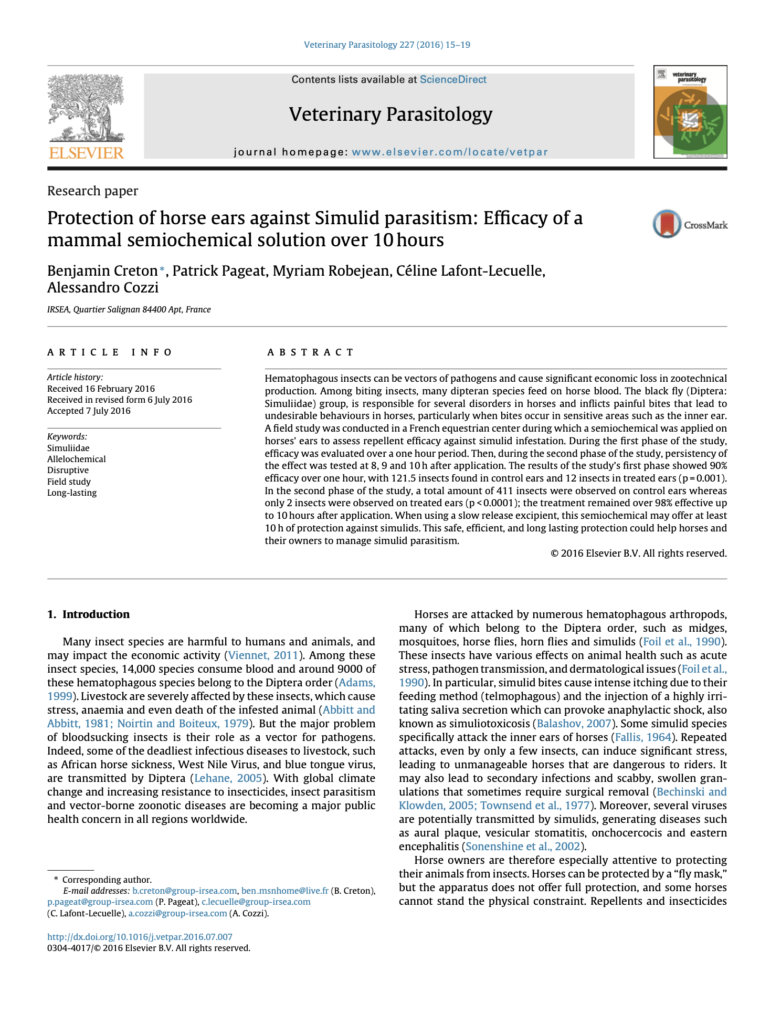Abstract:
Hematophagous insects can be vectors of pathogens and cause significant economic loss in zootechnical production. Among biting insects, many dipteran species feed on horse blood. The black fly (Diptera: Simuliidae) group, is responsible for several disorders in horses and inflicts painful bites that lead to undesirable behaviours in horses, particularly when bites occur in sensitive areas such as the inner ear. A field study was conducted in a French equestrian center during which a semiochemical was applied on horses’ ears to assess repellent efficacy against simulid infestation. During the first phase of the study, efficacy was evaluated over a one hour period. Then, during the second phase of the study, persistency of the effect was tested at 8, 9 and 10 h after application. The results of the study’s first phase showed 90% efficacy over one hour, with 121.5 insects found in control ears and 12 insects in treated ears (p = 0.001). In the second phase of the study, a total amount of 411 insects were observed on control ears whereas only 2 insects were observed on treated ears (p < 0.0001); the treatment remained over 98% effective up to 10 hours after application. When using a slow release excipient, this semiochemical may offer at least 10 h of protection against simulids. This safe, efficient, and long lasting protection could help horses and their owners to manage simulid parasitism.
Auteur: Benjamin Creton, Patrick Pageat, Myriam Robejean, Céline Lafont-Lecuelle, Alessandro Cozzi
En savoir plus: https://www.sciencedirect.com/science/article/abs/pii/S0304401716302667

